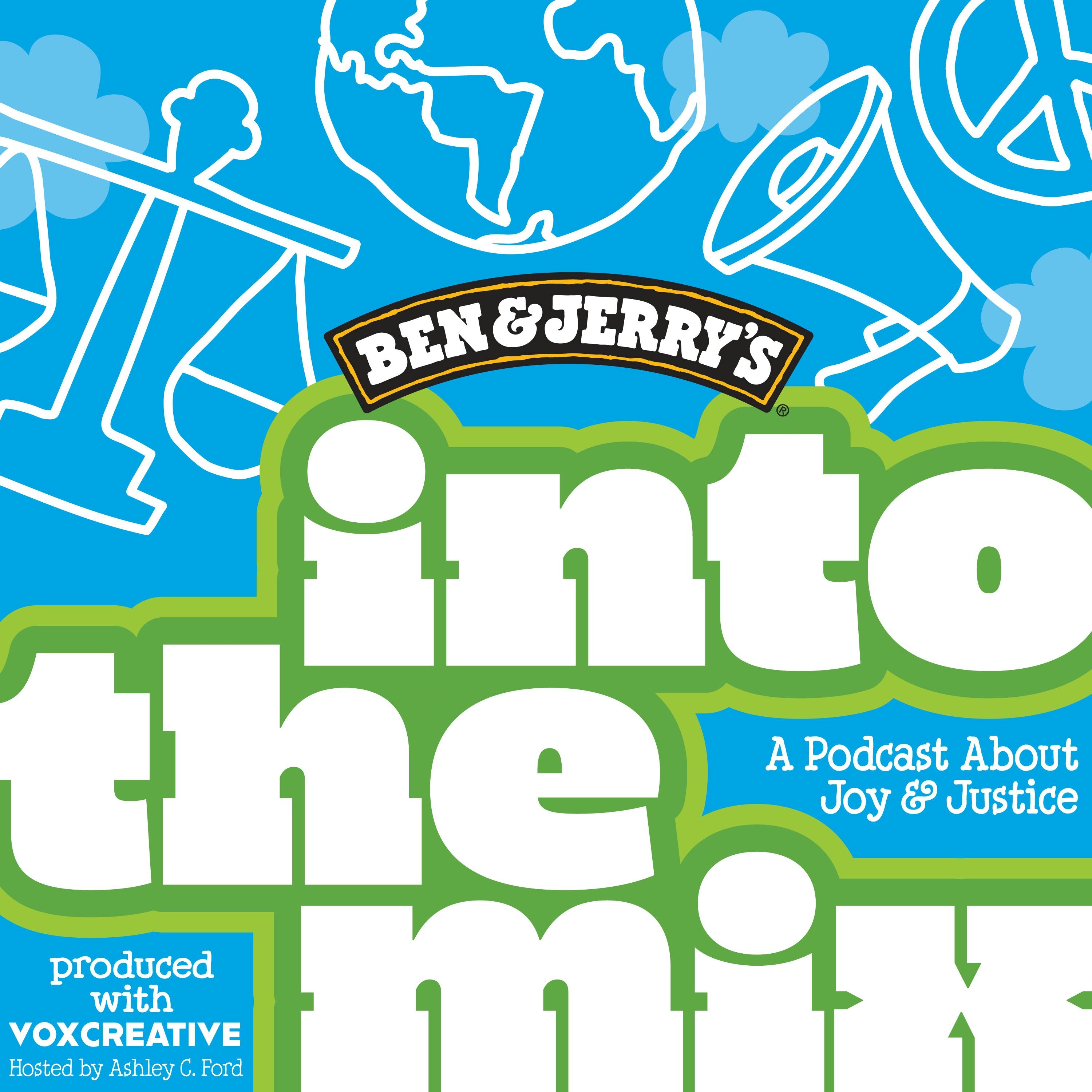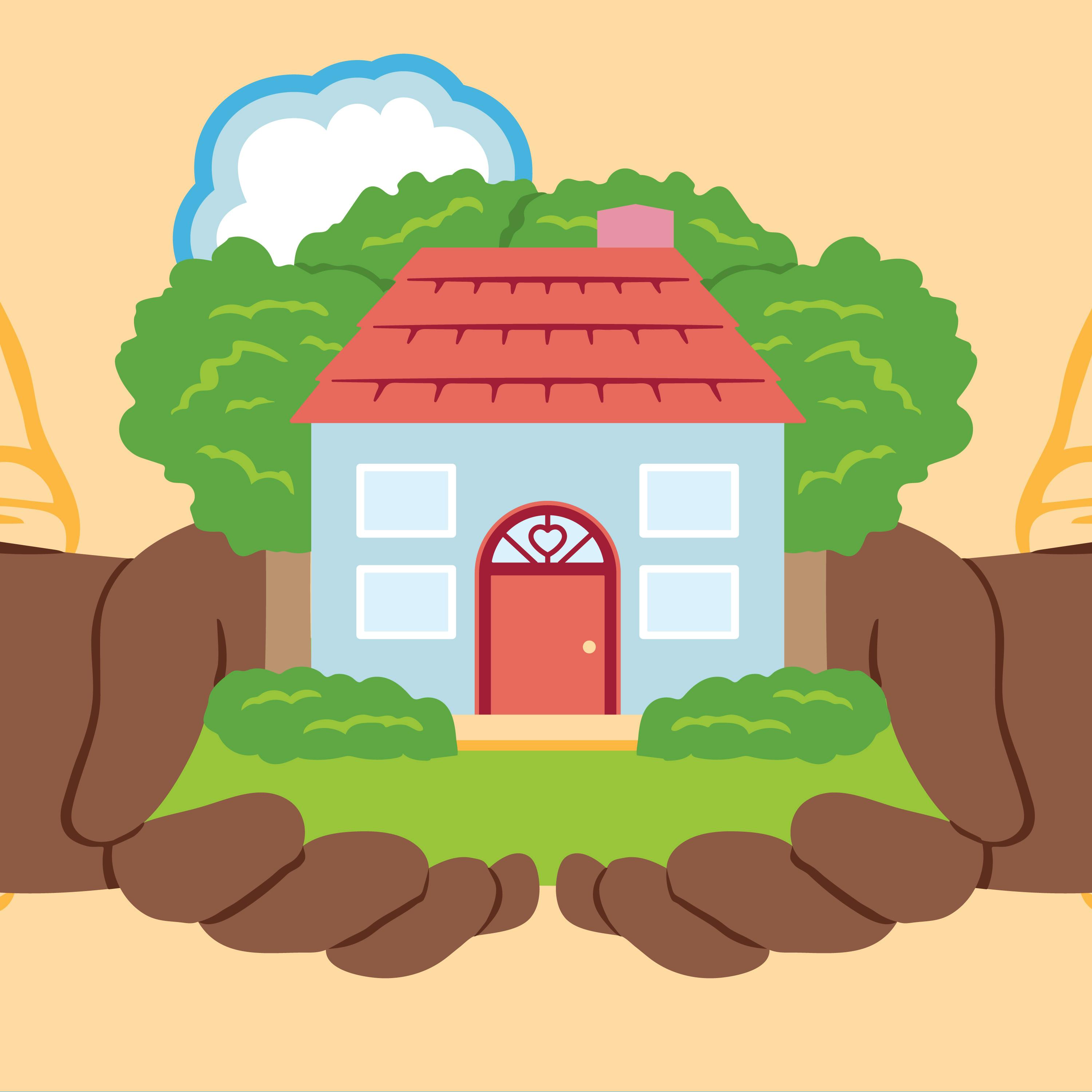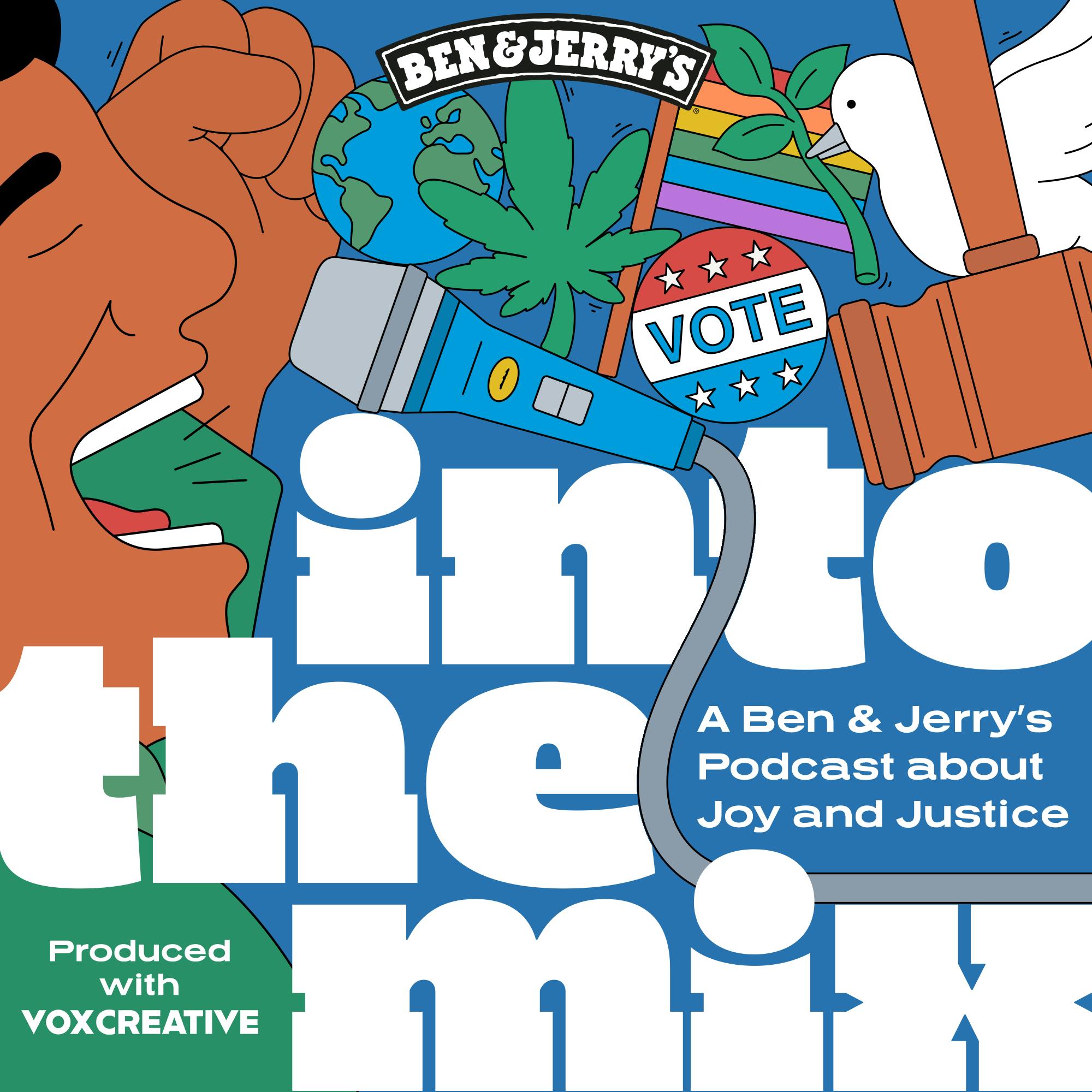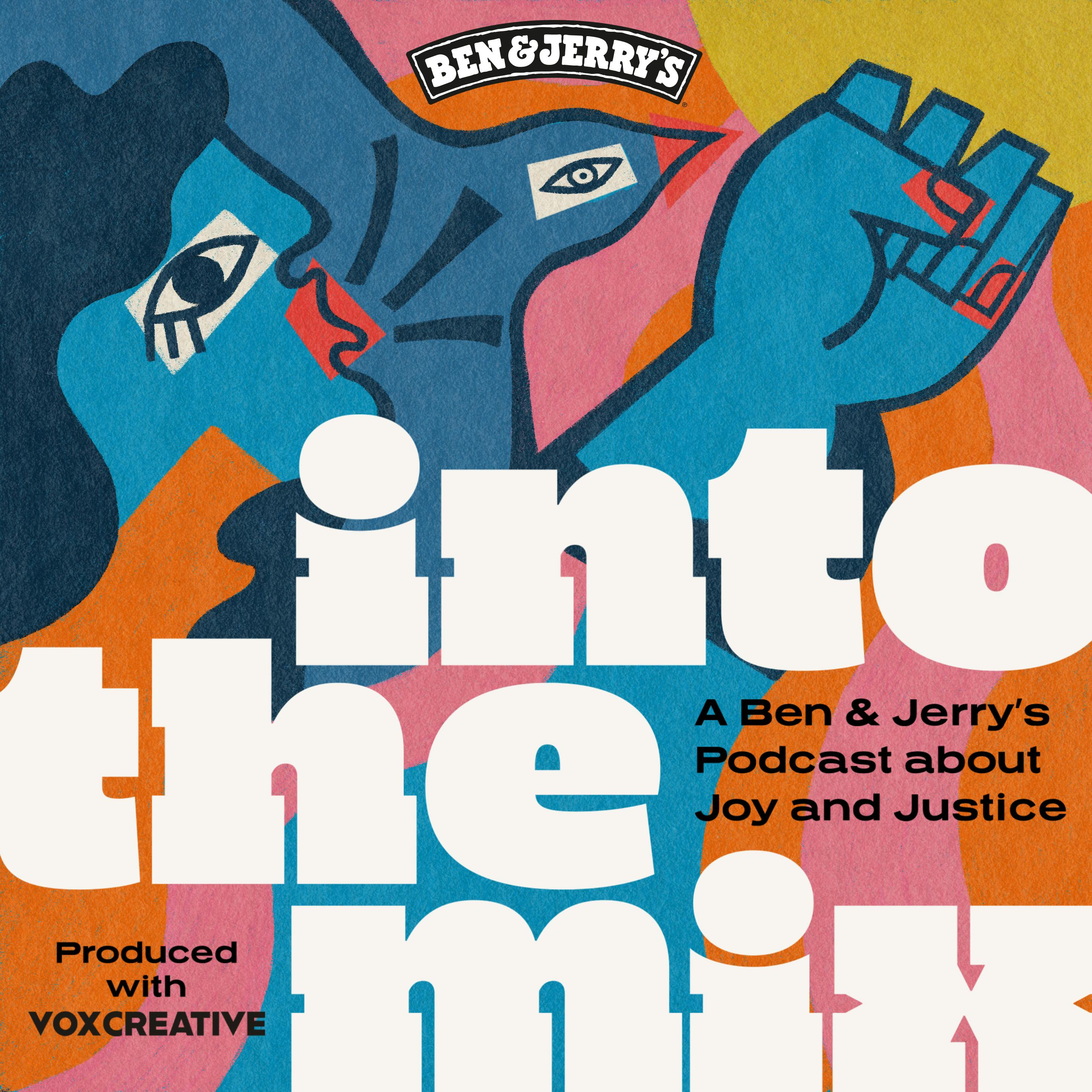49 episodes


Antonio and other business owners in Florida sued the state after the Stop WOKE Act was signed, and won. What does that mean for the future of the act, and for business owners in the state? In our final episode of the season, we’re taking a deep dive into the fraught conversation of D.E.I., the “war on woke,” and what it really takes to dismantle white supremacy. Learn more about your ad choices. Visit podcastchoices.com/adchoices


Florida Governor Ron DeSantis is on a mission to curb conversations about race, diversity, and inequity of all shades. He’s banned books, trainings, and classes. He’s introduced laws and attacked businesses of all sizes. But why? What is the motivation behind the so-called “War on Woke” and where do we go from here? Learn more about your ad choices. Visit podcastchoices.com/adchoices


According to Antonio McBroom, a day without dessert is a disaster. So it makes sense that he’s now an ice cream entrepreneur, slinging scoops of Ben & Jerry’s up and down the Florida coast. At the core of Antonio’s business model is leadership training and mentorship for all of his scoop shop managers. So when Florida Governor Ron DeSantis introduced the Stop WOKE act in 2021, he had two options: immediately halt training on diversity, equity and bias, or face potential legal action from the state. In the final mini-series of this season, we’re heading to Florida to learn how the Stop WOKE act has censored businesses, chilled critical conversations about equity, and spurred business owners like Antonio to fight back. Learn more about your ad choices. Visit podcastchoices.com/adchoices


We'll be back in November with our final mini-series of this season which delves into Florida's War on Woke and the ongoing fight to protect diversity, equity and inclusion programs. In the meantime, listen to some of our past episodes of Into the Mix. To learn more about how to support communities in Florida impacted by hurricane Milton, visit HERE. Learn more about your ad choices. Visit podcastchoices.com/adchoices


Ms. Livvy’s heroic efforts to protect voting rights have come at a cost. Her health has suffered, and she’s tired. But she knows there’s more work to do, especially with the November election on the very near horizon. In our final episode from Georgia, we’re diving into why your vote matters, why it’s a fundamental right, and the key ingredient to sustaining the fight for voting rights: joy. Learn more at benjerry.com/vote and get involved with Black Voters Matter here. Learn more about your ad choices. Visit podcastchoices.com/adchoices


Ms. Livvy has watched as Georgia has become ground zero for voter suppression efforts. Laws that wipe people from the polls are popping up left and right, all claiming to curb so-called voter fraud… even though studies have shown over and over again that rates of voter fraud are between 0.0003 percent and 0.0025 percent. Here’s what is a real issue: voter suppression. And as we get ready to cast our votes in November, the best way to make sure our election is representative of the country is to ensure that everyone who’s eligible can vote. Here’s how you can help. Learn more at benjerry.com/vote and get involved with Black Voters Matter here. Learn more about your ad choices. Visit podcastchoices.com/adchoices


Voters in Coffee County, Georgia have another name for this place: Crooked Coffee, where elections officials have waged war on voters of color for decades. So residents weren't shocked when their tiny community made national headlines following the January 6th attack on the Capitol, after members of the GOP there allegedly allowed Trump associates to copy software and other sensitive digital elections materials in the days following the 2020 election. It was the latest chapter in the long story of so-called voter fraud in this small, majority-Black county – and Olivia Coley Pearson is tired. Ms. Livvy, as she’s known in the community, is the descendant of a local voting rights hero, and she’s committed her life to furthering her mother’s legacy of fighting back against intimidation and suppression of voters of color, even as those attacks grow more personal. We’re headed to Georgia to meet Ms. Livvy in action, and to learn how she fought back against bogus voter fraud charges. Learn more at benjerry.com/vote and get involved with Black Voters Matter here. Learn more about your ad choices. Visit podcastchoices.com/adchoices


Ms. Sharon never thought she’d be the one to take down the industry harming her community. But as her fight gains momentum, she’s scoring wins that are making big impact. And Jo Banner never thought she’d own a plantation. But it’s a powerful way to protect the past, while defending her neighbors from the petrochemical industry. In the final episode of our series from the River Parishes, what happens when you dare to re-imagine a better future for your community, your family, and your home. Learn more about your ad choices. Visit podcastchoices.com/adchoices


The violent history of Cancer Alley began long before the petrochemical industry arrived in the 1960s. Prior to being dominated by plastics plants, this land was home to plantations. To understand how this stretch of the Louisiana River Parishes became a “sacrifice zone” – a place where plastic is more important than people – we’re taking a look back at the violent legacy of this land. Here’s how Ms. Sharon and Jo Banner, a neighbor from nearby St. John the Baptist Parish, are working to honor the past as they fight for their future. Learn more about the Descendants Project here. Learn more about your ad choices. Visit podcastchoices.com/adchoices


The beautiful stretch of Louisiana where Ms. Sharon Levine lives goes by many names: the River Parishes, The Great River Road, The Mississippi River Industrial Corridor, and, worst of all... Cancer Alley. This 85 mile stretch of riverbank houses over 150 petrochemical plants. The majority of these plants neighbor predominantly Black communities, many of which are historical freetowns created by formerly enslaved people in the wake of abolition. And now, Ms. Sharon’s schedule is filled with funerals for their descendants, who are falling dangerously ill as the industry chokes out the community. In this three-part series, the evolving harm of environmental racism, and how Ms. Sharon and her neighbors are rising up against it. Learn more about Rise St. James here. Learn more about your ad choices. Visit podcastchoices.com/adchoices


Learn more about your ad choices. Visit podcastchoices.com/adchoices


More than half a million Americans are sitting in jail awaiting trial. And 60% of them are there because they can’t afford not to be. That’s why the Workhouse jail in St. Louis stayed so full for so long. Some people jailed there were pulled over for speeding, others learned they had outstanding warrants for probation violations. All of them owed something to the courts. In the second episode of this series, we’re taking the courts to court, to understand how the system kept The Workhouse jail full for over a century, and how Inez and the community of activists around her emptied it for good. Learn more about your ad choices. Visit podcastchoices.com/adchoices


Inez Bordeaux needs you to know three things: she’s a mom of four, a Scorpio, and she always gets her lick back. So when a court error sent her life into a seven year tailspin, she came out swinging on the other side, and set her sights on justice. How? By closing the jail that symbolized the system that nearly buried her: The Workhouse. In this three-part series, we’re taking you to St. Louis to meet Inez and the community of activists, lawyers, and politicians that joined together to close a notorious jail that’s almost as old as the city itself. Please take care, as this episode discusses domestic violence. You can learn more about ArchCity Defenders here. Learn more about your ad choices. Visit podcastchoices.com/adchoices


Into the Mix is all about joy and justice in action, and this season, Ben & Jerry’s is bringing you four multi-part stories that take you beyond the news headlines, and introduce you to the real people at the heart of some of today’s greatest fights for justice. Host Ashley C. Ford is taking you to meet activists who fought to shut down a notorious jail in St. Louis, a community rising up against the destruction of their health and home in a part of Louisiana dubbed Cancer Alley, and leaders protecting voting rights and inclusion efforts in the south. Let’s get into it, beginning July 10th. Learn more about your ad choices. Visit podcastchoices.com/adchoices


Johnny Perez worked hard throughout his 13 year prison sentence. He sewed sheets and facilitated classes, met demanding quotas and helped other men prepare for life on the outside. The highest wage he was ever paid was 34 cents an hour. Meanwhile, prison labor generated $14 billion last year. So why do so many people like Johnny leave prison empty handed? In this Season Two finale, we’re going back to 1865, to understand how a key exception written into the 13th Amendment paved the way for the modern prison industry. From convict leasing to prison plantations, exploited labor is part of the DNA of this country, and more than two-thirds of people behind bars in America labor throughout their incarceration. Their average day wage? Just 86 cents. But: there’s a growing movement to end the exception, and end slavery once and for all in this country. Learn more about the movement to End the Exception here, and be sure to check out Worth Rises’ incredible study on prison labor, and UNICOR’s phone bank video. You can also learn more about Johnny’s work for NRCAT here. Learn more about your ad choices. Visit podcastchoices.com/adchoices


When Flo was arrested in 2016, he did not expect to be wrapped into the predatory commercial bail industry. $7,500: that was the amount the judge set for his pretrial release. “$7,500 might as well have been a million dollars to me.” As a result, Flo spent two months in jail even though he was legally innocent. Half a million Americans are in pretrial detention at any given moment, and more than 60% of them are there because they can’t afford bail. In theory, bail is supposed to be one way out of jail. So how did it become a way to trap so many people in, even when they're still legally presumed innocent? Learn more about the Pretrial Fairness Act, and support the Coalition to End Money Bond. Learn more about your ad choices. Visit podcastchoices.com/adchoices


Priscilla Robinson says the Southside neighborhood of Asheville, North Carolina was once a thriving, tight-knit community. She describes fruit trees and multigenerational homeowners, booming small businesses and neighbors who looked out for one another. But that all changed in 1968, when the city approved plans for “urban renewal” and displaced more than fifty percent of Asheville’s Black residents, including Priscilla and her family. Decades later, in 2020, Asheville became just the second city in the US and the first in the south to approve reparations for its Black population, and Priscilla is making sure that the harms of urban renewal aren’t forgotten as a community Reparations Commission shapes its plan. To see photos of the Southside prior to Urban Renewal, and to explore Priscilla’s research, click here. You can also learn more about the Racial Justice Coalition of Asheville here, and join us in calling for President Biden to establish a federal Reparations Commission here. Learn more about your ad choices. Visit podcastchoices.com/adchoices


When 3rd year med student Megh Kumar told a mentor she’d decided to go into OB GYN, she got an unexpected piece of advice: don’t. It’s been more than a year since the Supreme Court revoked constitutional protections for abortion rights with their Dobbs decision. Since then 13 states – including Megh’s home state of Kentucky – have banned nearly all abortions. Some states have criminalized performing or abetting abortion. The effect has been chilling not only for patients who need them, but for doctors who feel it’s their medical duty to provide them. As the next generation of doctors like Megh enter this field of medicine, many are asking themselves if it’s worth it. Abortion providers are often targets for harassment and violence, and studying in a restrictive state might limit training opportunities. Data show a more than 10% decrease in residency applications to OB GYN programs in restrictive states. If fewer doctors are training to be OB GYNs, what does that mean for the rest of us? Learn more about how to advocate for abortion rights at WeTestify, and visit SisterSong.net for more information about reproductive justice. Learn more about your ad choices. Visit podcastchoices.com/adchoices


On a cold night in 2002, Chrissy Isaacs watched yet another logging truck loaded with old growth trees hurtle past her home in the Grassy Narrows First Nation, down the only road into the reserve: built by and for the logging industry. Enough was enough. That night, she dropped a tree in the road to block the loggers, and changed her community forever. This is the story of land back, and the fight to correct the long, long history of colonizers claiming indigenous territories as their own for economic benefit. But for millions of Indigenous people around the world, land back is about a lot more than ownership. It’s about relating to the land as more than just a resource, a commodity extracted, traded, owned, and controlled. Land back is about relationships, and what happens when we reconnect to the lands and waters that shape us. Please take care when listening: this episode discusses suicide and self harm. Learn more about how mercury poisoning has affected Grassy Narrows, support the community as they fight logging and mining claims in their traditional territories, and get to know Indigenous Climate Action here. Learn more about your ad choices. Visit podcastchoices.com/adchoices


Andrea Phillips loves her job. She works at an elementary school as a reading interventionist, teaching struggling readers to love books. When she was told by her district to pack up her classroom library earlier this year, she was devastated. In 2022, Florida lawmakers passed HB 1467. This new law mandated that every book in Florida public schools be cataloged and reviewed for “harmful content”, and that schools create a system for parents to petition the removal of books they found inappropriate. Out of an abundance of caution, two county school districts – including Andrea’s – decided to block or remove all unreviewed books from schools while they adopted this new system. Otherwise, administrators worried they could be liable for violating another Florida law. In effect, more than 175,000 Florida students went to schools where library books were off-limits for part of the school year. Across the state hundreds of books containing themes of race, sexuality, and LGBTQ identities have been pulled from school libaries, even classics that are required reading in other states. Critics say this is just another example of Governor Ron DeSantis attempts to silence marginalized voices in Florida classrooms. Book bans have happened throughout our country’s history, usually in response to changing social norms. But when public education is unequal and struggling schools can’t afford to lose any resources, what do laws like this do to our most vulnerable students? Host Ashley C. Ford explores Florida’s book bans, their effects on students and educators, and the evolving history of American public education. For more information on how to support teachers and get banned books to kids, visit ALA’s Unite Against Book Bans campaign, and support Foundation 451. Learn more about your ad choices. Visit podcastchoices.com/adchoices


Most kids in the U.S. go to a school that’s patrolled by police officers. They’re supposed to keep students safe, but after decades of increased surveillance, in-school arrests have skyrocketed for kids of all ages. And most of the kids arrested at school are students of color. A group of students in Des Moines, Iowa didn’t need data to know that police in their school district were harmful, so they set out to do something about it. Here’s how they worked with their community to build a greater movement to protect students, and especially students of color. Learn more about the Advancement Project’s Opportunity to Learn campaign here, the effectiveness of restorative justice in schools (5:09), how Des Moines Public Schools have updated their policies (16:53), and how Endi, Lyric and Kai made change in Des Moines. Learn more about your ad choices. Visit podcastchoices.com/adchoices


We’ll be back in August with more episodes! Learn more about your ad choices. Visit podcastchoices.com/adchoices


In January 2021, Zahra Shaheer had to get out of Afghanistan… fast. So when she had the rare opportunity to secure safe passage for herself and her two children, she made the heartbreaking decision to flee, even though it meant leaving her mother behind. Now, Zahra and her mother remain separated by thousands of miles, and insurmountable policies that are designed to prevent her mother from reuniting with her family in the new home in the UK. David Miliband from the International Rescue Committee joins us to look at the history of global refugee policy, and the importance of safe routes as more displaced people seek safety around the globe than ever before. To learn more and take action, click here, and join Ben & Jerry's in calling for safe routes here. Learn more about your ad choices. Visit podcastchoices.com/adchoices


As lawmakers consider more than 500 anti-trans bills nationwide, experts warn that these efforts will increase already-high rates of depression and suicidality for trans kids. But what happens when these kids are affirmed and supported in their transition? When their communities welcome them with open arms? Hear the story of Oli Oski, who, when he was just seven years old, helped convince an LGBTQ resource center to start offering play groups for trans and queer kids under 13. Oli is 19 now, and already he’s left a legacy for the next generation of LGBTQ kids who face acute social and political persecution. Host Ashley C. Ford helps tell this story of self determination, legacy, and sanctuary. Learn more about Outright Vermont here. Learn more about your ad choices. Visit podcastchoices.com/adchoices


Did you know that without migrant farm workers, the price of dairy would be twice as expensive? Dairy farming is one of the most challenging jobs in agriculture, and like a lot of farmwork has notoriously weak legal protections for workers, leading to long hours, poor pay, and unsafe conditions. Host Ashely C. Ford tells the story of how a group of farmworkers came together after a senseless tragedy to demand change – and together built a safety net to protect their most vulnerable workers. Learn more about Migrant Justice and their Milk with Dignity program here. Learn more about your ad choices. Visit podcastchoices.com/adchoices


Back in the day, Michael Thompson was a local legend in Flint, Michigan. He brought acts like Aretha Franklin to town, and did incredible work to ease vicious gang violence in his community. So when he was sentenced to 42 to 60 years in prison, Flint was shocked, and devastated. His crime? Selling marijuana to a police informant. Michael was still serving time while recreational dispensaries began popping up all over his hometown, and he ended up serving the longest sentence for a nonviolent drug charge in Michigan’s history. As he navigates life post-release, he’s calling for others left behind in prison to get the same opportunity to walk free through clemency. You can learn more about his mission at MTclemency.com. Learn more about your ad choices. Visit podcastchoices.com/adchoices


Today, over 4.5 million people can't vote in the United States because of a mistake they made in the past. Desmond Meade is one of them. He's a "returning citizen" who understands the devastating impacts of having your civil rights stripped away, and the redemptive power of second chances. So, he set out to do something about it, and brought about the greatest expansion of voting rights in America in half a century. It’s that work that just earned his organization a Nobel Peace Prize nomination. You can learn more about Desmond’s work at the Florida Rights Restoration Coalition here. Learn more about your ad choices. Visit podcastchoices.com/adchoices


Ben & Jerry’s is back with another season of Into the Mix, a podcast about joy and justice. Hosted by Ashley C. Ford and produced with Vox Creative, this season will bring you stories of struggle and success from the everyday people at the heart of our greatest fights — from voting rights, to cannabis justice, to dignity for migrant workers — today. Season 2 begins with a conversation with the man who brought about the largest expansion of voting rights in half a century. Let’s get into it, starting on Wednesday, February 22nd! Learn more about your ad choices. Visit podcastchoices.com/adchoices


Ava DuVernay was a total film nerd growing up in Compton, CA; now she’s a bonafide Hollywood icon. Before making it big with films like Selma, 13th, and A Wrinkle in Time, Ava made her mark exploring themes and characters inspired by her own life. Join host Ashley C. Ford to learn how Ava uses her influence to make the film industry more inclusive, in front of, and behind, the camera. Learn more about your ad choices. Visit podcastchoices.com/adchoices


Erika Alexander started out as a child actor in Philadelphia before landing the iconic role of Maxine Shaw, Attorney at Law on the hit sitcom Living Single. Today, the veteran of screen and stage uses her storytelling skills to advocate for reparations for Black Americans. Host Ashley C. Ford interviews Erika Alexander about her career, family, and efforts to uplift Black voices. Learn more about your ad choices. Visit podcastchoices.com/adchoices